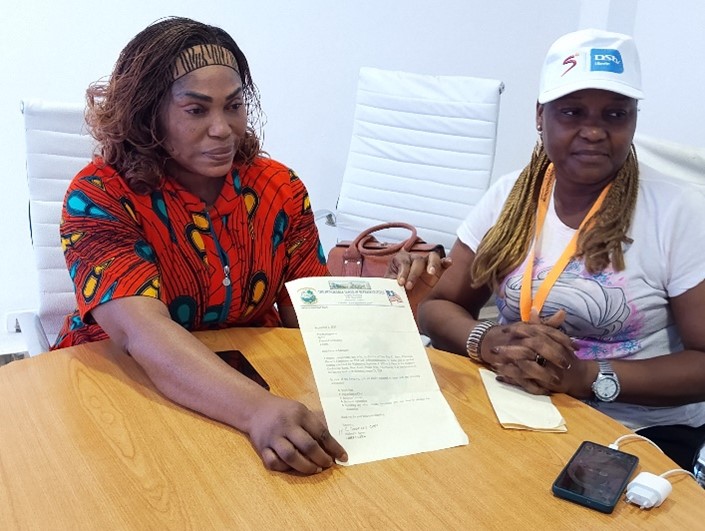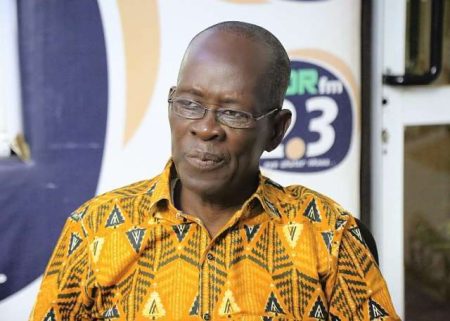Consolidated Group Incorporated and DSTV Liberia in Regulatory Tug-of-War
In Monrovia, Liberia, the relationship between Consolidated Group Incorporated—an agent of DSTV Liberia—and the government is under scrutiny due to allegations regarding the lack of uplink for the Liberia Broadcasting System (LBS) onto the DSTV satellite grid. The tension escalated when Eugene Faghon, the Director General of the Liberia Broadcasting System, placed the Consolidated Group in the crosshairs of a political agenda, leading to interventions by the House of Representatives amid claims that the company has failed to fulfill its obligations. The situation draws attention to the complex dynamics of media outsourcing, government accountability, and the operational challenges faced by broadcasting agents.
During a recent press conference, Mary Williams, the General Manager for Content at the Consolidated Group, explained the unexpected nature of the allegations against them, suggesting that the complaints first articulated by Mr. Faghon were escalated without their consent. Initially intended as a discussion on partnerships and business growth in the broadcasting sector, William’s remarks painted a stark contrast against the backdrop of how the inquiries unfolded. As previously agreed upon, Mr. Faghon’s portrayal of the situation during the Committee meeting left the DSTV representatives feeling ambushed and betrayed, due to discrepancies between their private discussions and the public accusations that followed. This miscommunication further fueled the rift between the entities involved.
As discussions progressed, it became evident that the House of Representatives demanded the presence of Simeon Freeman, the CEO of Consolidated Group. However, agents from the company insisted that Freeman’s absence should not be a cause for contempt, emphasizing that the communication was directed to their General Manager. Williams highlighted the bureaucratic nature of the uplink request, clarifying that they are merely agents who operate under specific protocols. Their inability to act unilaterally in this matter reflects the intricacies in broadcasting regulations, where entities like DSTV must follow defined processes while maintaining compliance with legislative expectations.
Williams underscored a pivotal meeting in July where discussions surrounding the uplink to DSTV were initiated. The Director General of LBS indicated a desire to include local content, a proposal that was welcomed by DSTV Liberia. However, the General Manager reminded Mr. Faghon of the requisite procedures, such as submitting a formal request detailing local broadcasting intentions, financial commitments, and operational history. This procedure reflects the ethical business practices necessary in media broadcasting, where the weight of corporate responsibility must be shared between all parties involved. Unfortunately, Faghon’s requirement of “upfront connection” conflicted with the established channels of business, igniting tensions between the government and the broadcasting agent.
Amid the challenging discourse, Williams also noted financial aspects related to the subscription base being developed by Faghon. The mention of a new subscription plan drew parallels to the existing business model employed by Consolidated Group, reflecting a competitive landscape within the media industry. As both entities navigate the demands of service delivery, the importance of adhering to operational frameworks remains crucial. Williams emphasized that they are not hindering Mr. Faghon’s vision but insisted on the need for mutually agreeable actions that conform to regulatory guidelines, demonstrating the essence of due diligence in corporate operations.
Thus, the unfolding saga between Consolidated Group Incorporated and the Liberian government highlights the multifaceted challenges faced in the telecommunications and media landscape. With government officials influencing commercial operations and the regulatory environment becoming increasingly complicated, the need for transparent communication and adherence to established processes appears more critical than ever. The political ramifications of such disputes can ripple through the industry, potentially destabilizing relationships between media and government entities, while raising vital questions regarding governance, compliance, and the evolution of media broadcasting standards in Liberia. The coming months will likely reveal how these conflicts will impact the media landscape and the broader implications for regulatory practices within the nation.














